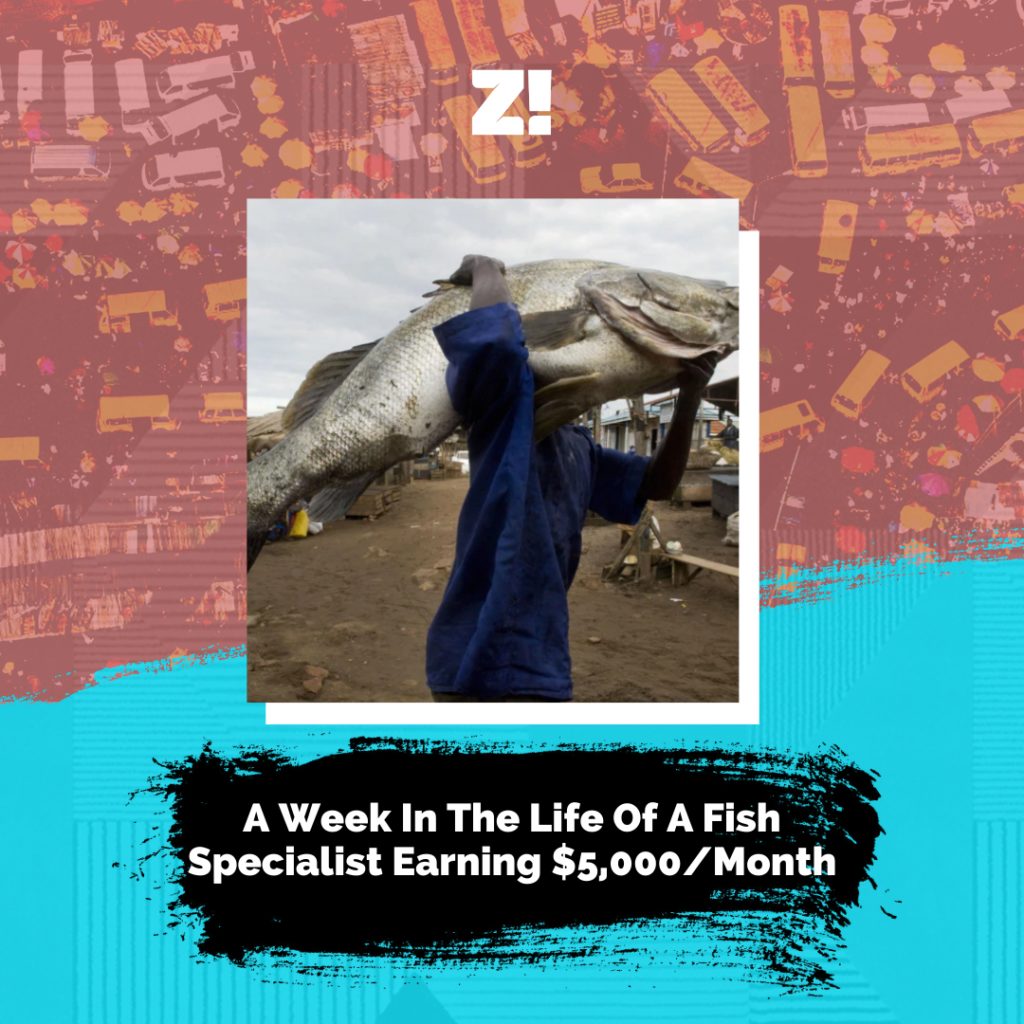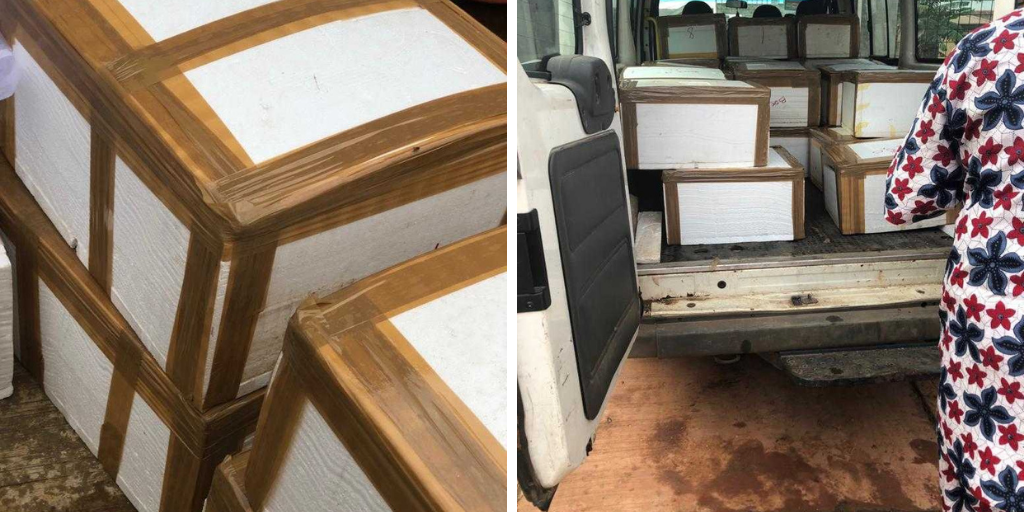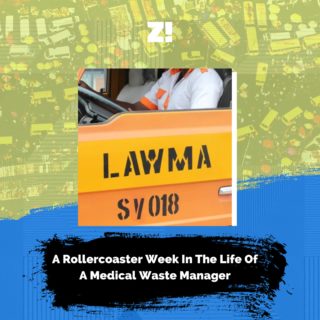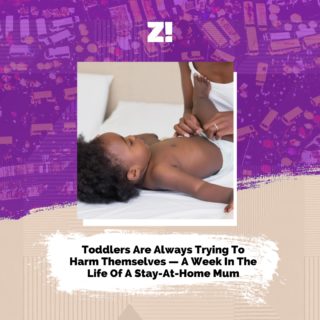“A Week In The Life” is a weekly Zikoko series that explores the working-class struggles of Nigerians. It captures the very spirit of what it means to hustle in Nigeria and puts you in the shoes of the subject for a week.
The subject of today’s “A Week In The Life” is a twenty-six-year-old fish specialist. He talks about making over $30,000 from selling fishes, how he stumbled on the business, the cruelty fishes face, and why he left paid employment.

MONDAY:
I quit my job today.
With everything going on this year, it just felt like the job was one more thing that wasn’t working because the company wasn’t offering me the growth I wanted. Even though I’m worried about the next step, I’m happy because I have a side hustle which involves exporting fishes alive as pets or for whatever use the person buying needs it for.
As a kid growing up, other people had televisions in their house, while we had an aquarium. Because my dad studied Fishery at the university, I learned a lot about fishes from a young age. The only downside was never having anyone to discuss them with — everyone looks at you weirdly when you bring up a conversation about fish. So, I turned to the internet where I started a community of over a thousand like-minded people. I’ll never forget the first time someone outside Nigeria offered to pay me $400 to send fishes to him. In my head, I was like does this guy know what the exchange rate is? Those were cute times because I’ve since gone on to make up to $12,000 in one sale, and $30,000 in the total sale — the profit margin is insane.
I buy fishes for $100 outside Lagos from fishermen who catch and kill them for sale. Fishes are only useful to fishermen when they’re dead, so I have to beg them to catch mine alive. Because there are many cruel methods fishermen use to catch fishes, this is usually a struggle for them. And many times, I have to buy a net and even build ponds by the rivers for them. I’ve heard that fishermen pour herbicides on the water to kill the fishes and then pack the dead bodies for sale. I’ve also heard some of them pour palm oil on the water and because of the viscosity — oil stays on the water —fishes can’t take in oxygen. When fishes take in “oiled water,” it blocks their gills making it impossible for them to extract oxygen from water so they die. Whenever I beg them not to employ regular tactics, they always look at me like I’m stupid because they can’t fathom what I’m using the fishes for.
The more I think about it, the more I realise that Nigeria is not even a place for a human being, talk less of a fish.
TUESDAY:
God will bless white people and they’ll go to heaven because they came to Nigeria, assessed our rivers and compiled a book about all the species of fishes in them. Published in the 80s, this book is one of those dusty, dog-eared books that has seen different regime changes in Nigeria. In the book, you’ll see how rivers are connected, the number of fishes in each river, and migration time table of these fishes. Just by reading the book, I know the time of the month and river to go search for a specific fish. All I have to do is go to the community with a picture to show the fishermen and speak small Yoruba. That’s the easy part.
The hardest part is transporting the fishes alive down to Lagos.
I have to beg the driver to pack the fishes in a certain way because if the water gets too hot, the fishes will die. I also have to beg for water to be changed at certain bus stops during the journey. It’s stressful in its own way not because of the cost of the fishes but because the people [fishermen, driver] I’m dealing with don’t know the value, so I literally have to teach them.
I don’t even want to get started on people at the airport. Those ones have no clue on how to handle my goods because they are running on vibes.
WEDNESDAY:
I’m exporting some fishes today so I’m making preparations. The basic things are oxygen, water and packaging boxes. Fishes are funny because some of them require little oxygen while others require a lot of oxygen. For the latter, I spray oxygen from my oxygen tank [used in hospitals] into their water. After that, I place the water into a bag which then fits into a styrofoam box, and we bind them for the journey ahead. During winter, I’d wrap the styrofoam box with a lot of newspapers to insulate against the cold. It’s a crude method, but it is what it is. Everything I’m doing is basically trial and error because there’s no rule book per se.

The internet has been helpful in helping me figure things out and it has also shown me that no matter how stupid you think what you write is, someone will find it useful. For me, I’m just glad that my passion is allowing me to connect and earn the kind of money I’d not earn on a regular day.
THURSDAY:
On this day last month, a Japanese man cheated me out of $6,000. My plan was that the money would be my safety net after quitting my 9-5. We had an agreement of $9,000 — $3000 for freight cost, and $6000 for the fishes. He ended up paying only the freight cost and leaving me in almost ₦2 million debt. Before this incident, I used to say Japanese people were the most trustworthy people in the world and that’s why I shipped without complete payment. When he blocked me on Instagram and stopped replying to my texts, e shock me.
The only reason I’m remembering is that I just got paid for another batch of fishes I sent, so I’m finally debt-free. I’m just thankful for friends who loaned me money during that period because I was as broke as a church rat.
Will I do it again? Yes. For me, it’s more than the money; it’s finding people who share the same passion with me. And that sense of community.
I didn’t start out looking for money, someone just told me they’d pay me to ship fishes and that’s how I stumbled into this business. The upside is that one shipment from this month already offset the loss from the Japanese guy. And I have another shipment in December. I’m not worried because I know that with at least $5000 profit a month, I won’t go hungry. Coupled with the fact that I’m also doing something I enjoy, it’s a win for me.
Whether I make money or not, I’ll always love fishes and I’ll always own an aquarium in my house to be gazing at them. Even though other people are worried about my unemployment, I know I’ll be fine at the end of the day. And if I’m not then it’s not the end.
Check back every Tuesday by 9 am for more “A Week In The Life ” goodness, and if you would like to be featured or you know anyone who fits the profile, fill this form.
COMPONENT NOT FOUND: donation



